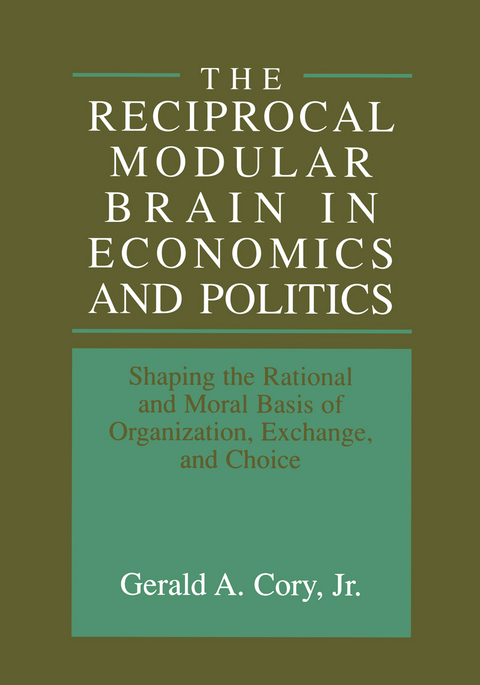
The Reciprocal Modular Brain in Economics and Politics
Springer-Verlag New York Inc.
978-1-4613-7152-6 (ISBN)
1. Introduction.- 2. The Maslow Hierarchy of Needs vs. MacLean’s Triune Brain.- 3. MacLean’s Triune Brain Concept: In Praise and Appraisal.- 4. Toward a New Neurobehavioral Model.- 5. The Algorithmic Rules of Reciprocal Behavior.- 6. The Conflict Systems Neurobehavioral Model vs. the Maslow Hierarchy.- 7. The Reciprocal Algorithms of Behavior and the Norm of Reciprocity.- 8. Empathy in Economics: Anthropological and Sociological Perspectives.- 9. Rational Choice Theory Contra the Human Mammal.- 10. Political Economy: The Reciprocal Brain and the Management and Creation of Scarcity.- 11. Institutions, Organizations, and Reciprocity.- 12. The New Institutional Economics: Williamson and Transaction Cost Economics.- 13. The New Institutional Economics: The Perspective of Douglass North.- 14. Do All the Children Have Shoes? The Contrived Nature of Demand and Supply in Economics.- 15. The Reciprocal Equation in Behavior, Social, and Economic Exchange: An Interim Summing Up.- 16. The Culture Bound Nature of American Economic Theory.- 17. Public Choice Theory and Political Science.- 18. Conclusion.
| Zusatzinfo | X, 134 p. |
|---|---|
| Verlagsort | New York, NY |
| Sprache | englisch |
| Maße | 178 x 254 mm |
| Themenwelt | Medizin / Pharmazie ► Medizinische Fachgebiete ► Neurologie |
| Medizin / Pharmazie ► Studium | |
| Naturwissenschaften ► Biologie ► Evolution | |
| Naturwissenschaften ► Biologie ► Humanbiologie | |
| Naturwissenschaften ► Biologie ► Zoologie | |
| Wirtschaft ► Volkswirtschaftslehre ► Ökonometrie | |
| ISBN-10 | 1-4613-7152-X / 146137152X |
| ISBN-13 | 978-1-4613-7152-6 / 9781461371526 |
| Zustand | Neuware |
| Haben Sie eine Frage zum Produkt? |
aus dem Bereich


